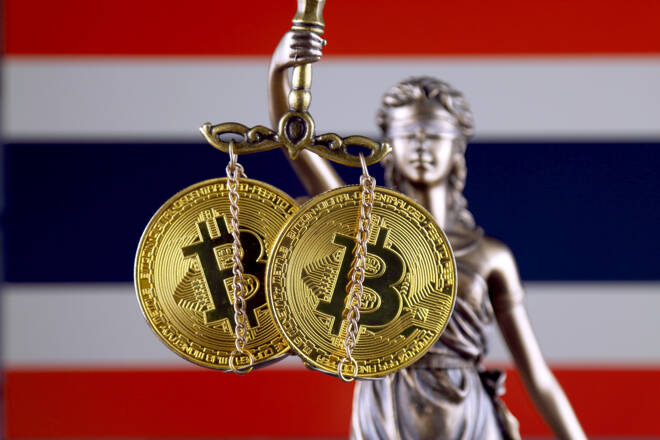Advertisement
Advertisement
Thailand SEC Bans Cryptocurrencies for Payments
By:
Amid rising interest in cryptocurrencies in the Southeast Asian nation, Thailand's recent ban on the use of crypto for payments could affect the same.
Key Insights:
- Thailand bans crypto for payments but allows trading and investing.
- A growing interest in cryptos has been witnessed in Southeast Asian nations, including Thailand.
- The country plans to test its retail CBDC later this year.
While the Southeast-Asian markets have witnessed a staggering rise in interest for blockchain and cryptocurrencies, regulators are still skeptical of this sudden rise. On 23 March, Thailand’s Securities and Exchange Commission (SEC) announced that it is banning the use of cryptocurrencies as a means of payment for goods and services.
Another Ban Shadows Crypto Markets
A report citing the local watchdog notes that cryptocurrency exchanges and other organizations from the industry will be required to stop providing digital asset payment services from April 2022.
Previously the nation’s regulatory bodies had warned against the usage of cryptocurrencies. Two months ago, the SEC, the Bank of Thailand, and the nation’s Ministry of Finance had jointly revealed that they plan to ban crypto for payments to avoid financial instability and economic system risks.
The regulator has cited money laundering concerns and the inability of the central bank to step in and provide assistance as the reason behind the ban. They further said that digital assets do not improve the payments market’s efficiency because of their volatility and high transaction fees.
However, to the relief of the citizens, the Thai SEC stressed that the ban is not on crypto trading and investing digital assets. Notably, trading and investing in cryptos has become more popular among the locals in the last two years.
In early March, Thai authorities announced that crypto trades on government-approved exchanges would be exempted from a 7% value-added tax (VAT) until 2023.
Thailand’s Regulatory Saga Continues
Last year, a Bloomberg coverage noted that Thais hold more than $3 billion worth of cryptocurrencies, which was a massive increase compared to just a few years ago.
Thailand to unveil detailed rules for digital assets to minimize risks to the financial system and provide greater investor protection, the central bank says https://t.co/QDCalWLfYF
— Bloomberg Crypto (@crypto) December 23, 2021
Furthermore, a November report by the Thai Securities and Exchange Commission highlighted that the trading volumes of cryptos have surged by more than 1,100% since November 2020.
Thailand is Southeast Asia’s second-largest economy and aims to move towards crypto adoption cautiously. The country plans to test its retail central bank digital currency (CBDC) later this year as an alternative payment option for the public.
Notably, alongside the crypto payments ban news, the cryptocurrency market saw a minor pullback as BTC’s price returned to $42K. While the two events could be unrelated, regulatory tightening has often led to short-term bearish turns in the market.
About the Author
Varuni Trivediauthor
A Journalism post-graduate with a keen interest in emerging markets across South East Asia, Varuni’s interest lies in the Blockchain technology. As a financial journalist, she covers metric and data-driven stories with a tinge of commentary, and strongly believes in HODLing.
Advertisement
